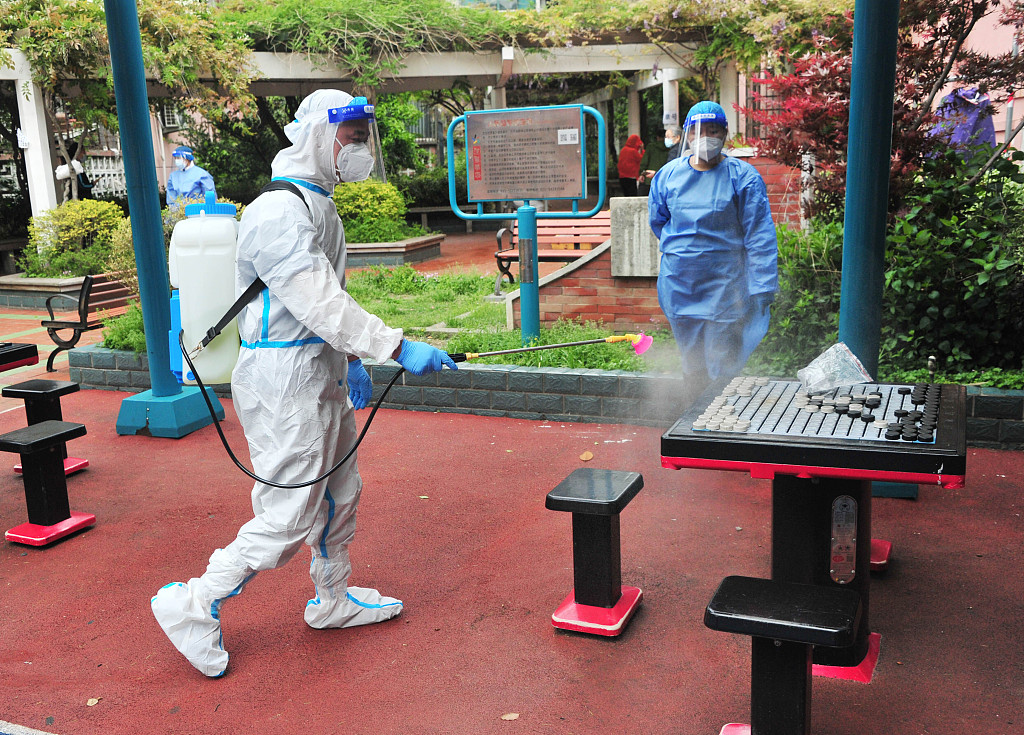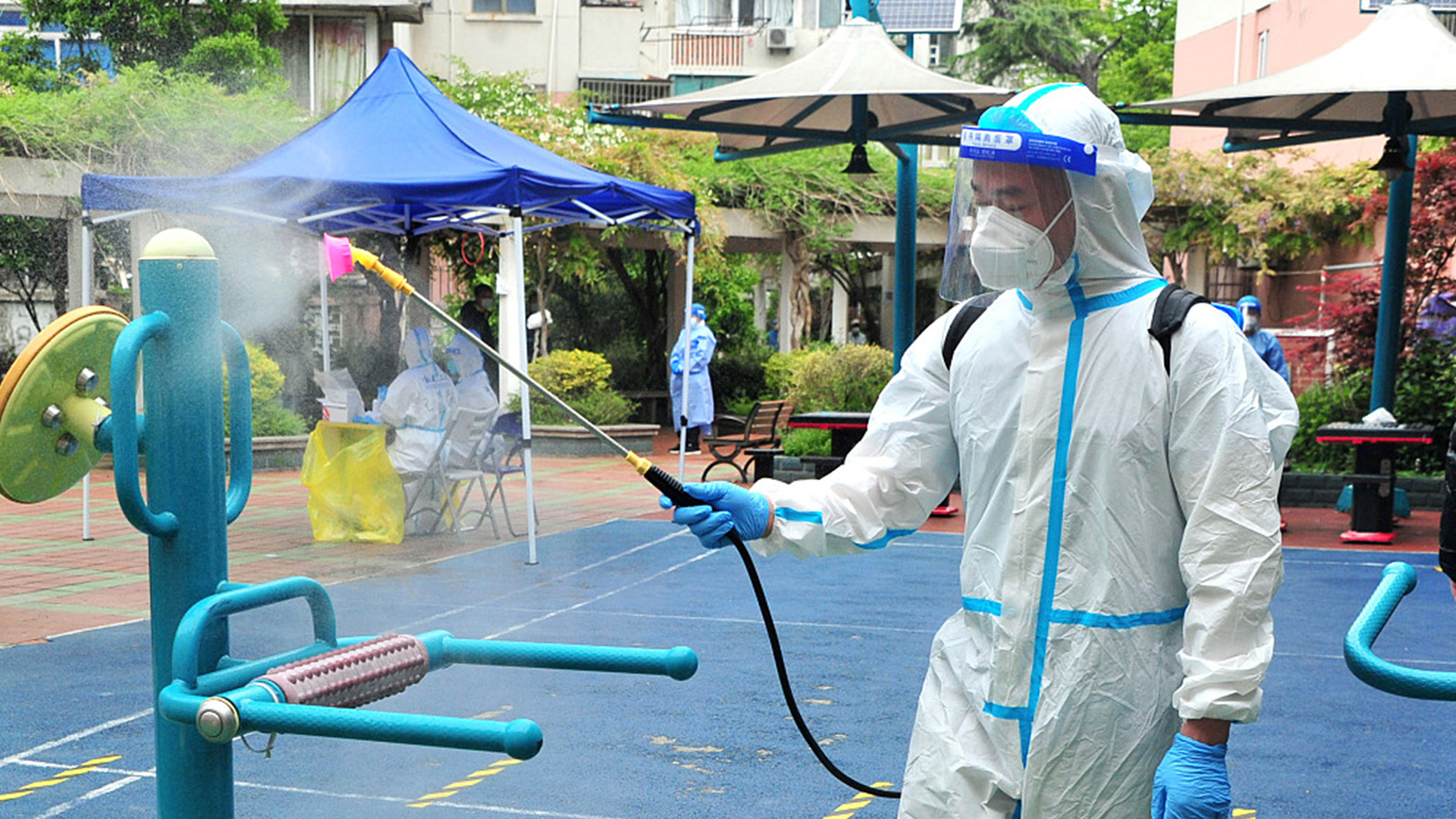
Community volunteers conduct preventive disinfection at an express delivery point in Yangpu District, Shanghai, China, April 16, 2022. /CFP
Community volunteers conduct preventive disinfection at an express delivery point in Yangpu District, Shanghai, China, April 16, 2022. /CFP
The proportion of people with COVID-19 found in at-risk groups in Shanghai is declining. Although the number of positive cases found in the past two days is still high, they are relatively stable, local authorities said.
"Among the 21,582 asymptomatic cases, 415 were found in at-risk groups (a decline from 661 cases two weeks ago)," said Wu Jinglei, director of the Shanghai municipal health commission, during Sunday's press conference on the COVID-19 situation.
The downward trend means that more sources of COVID-19 infections have been isolated and controlled.
The megacity of 25 million people is the worst-hit in China's latest around COVID-19 outbreaks. The daily infections have grown from dozens to more than 25,000 cases since March, despite increasing restriction measures.
There were 3,238 confirmed locally transmitted COVID-19 cases and 21,582 local asymptomatic carriers on Saturday, the municipal health commission said Sunday.
A total of 373 locally transmitted COVID-19 patients were discharged from hospitals after recovery, and 10,337 COVID-19 patients were released from centralized medical observation on the previous day, it said.
Wu also mentioned the current number of severe cases in the city, saying "there are now 16 severe cases of COVID-19 in Shanghai, among which the youngest one is 33 years old, and the others are all people over 70 years old."
"Only one case of the 16 was fully vaccinated, while the others have not been vaccinated against COVID-19 at all," Wu added, noting that the 33-year-old also suffers from a pre-existing severe autoimmune disease that significantly weakened the patient's immune system.
02:31

High-frequency repeated nucleic acid testing is very necessary in Shanghai, and it is also a very effective method in the current epidemic in the city, Gao Chunfang, a professor at the Yueyang Hospital of Integrated Traditional Chinese and Western Medicine at the Shanghai University of Traditional Chinese Medicine said at the conference.
"All infectious diseases have a certain incubation period, and the COVID-19 coronavirus is no exception," Gao said during clinical trials, high-frequency repeated testing is a very common pathogen detection method and is usually conducted three to five times.
"Considering the current situation, repeating tests can timely lock the positive cases, especially the asymptomatic ones and also the risk areas, and identify and isolate the source of new infections, stop the spread of infections, and protect the vulnerable groups against the COVID-19," Gao said.
Read more:
Shanghai issues epidemic prevention guidelines to bolster work resumption
Exclusive Stringer Dispatch: How I spend my day in Shanghai's temporary hospital

